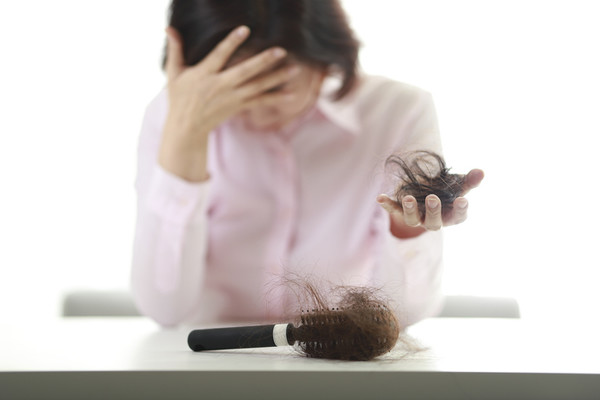[Jeong Jae-hoon's Column on Food & Drug]

No one appreciates the side effects of medication. Nonetheless, at times, these effects can serve as an indicator of a drug's effectiveness. Take, for instance, minoxidil, a commonly prescribed treatment for hair loss. During the initial stages of minoxidil usage, it may paradoxically cause increased hair loss. This phenomenon occurs because it shortens the hair's resting period, which is actually promising news for individuals seeking to address hair loss. Thus, if you're using minoxidil to combat hair loss, don't be alarmed by the initial uptick in hair loss. This occurrence signifies that minoxidil is operating as intended, and with continued use, your hair will regrow more rapidly and become denser, resulting in an increase in overall hair volume.
Unfortunately, minoxidil doesn't yield positive results for everyone. Originally designed to treat high blood pressure, minoxidil's effectiveness hinges on its activation by the transferase enzyme within the hair follicles. It expands the blood vessels that supply nutrients to the hair follicles, leading to improved blood circulation and the growth of larger hair follicles. Additionally, it stimulates the formation of new blood vessels around the follicles. Nevertheless, the presence of sulfotransferase within hair follicle cells varies from one individual to another. Those lacking a sufficient quantity of the enzyme necessary to convert the drug into its active form won't experience significant benefits.
The heightened hair loss experienced in the initial two to three weeks of minoxidil usage is actually a promising side effect. It indicates that the sulfotransferase in the hair follicle cells is functioning as intended. It's worth noting that certain nonsteroidal anti-inflammatory drugs (NSAIDs), including aspirin, can potentially disrupt the activity of this enzyme, thereby diminishing the effectiveness of minoxidil. This interaction is essential to consider if you're utilizing minoxidil to address hair loss.
Recent research indicates that mild body aches following a Covid-19 vaccine serve as an encouraging sign that the vaccine is effectively engaging your immune system. Symptoms including fever, chills, headache, and fatigue are indicative of your body's immune response intensifying. This insight is derived from a study conducted in the U.S. in December 2020, a time when Covid-19 vaccinations were in their early stages. The study found that individuals who encountered symptoms such as fatigue, discomfort, and headache following the second vaccine dose exhibited nearly double the levels of antibodies compared to those who did not. Furthermore, it revealed that a 1°C increase in skin temperature correlated with nearly triple the antibody levels six months after the second vaccine dose.
Previously, there was concern that using anti-inflammatory medications after vaccination might weaken the immune response and reduce its effectiveness. However, a subsequent study published in 2022 by the same research team revealed that individuals who took NSAIDs such as aspirin and ibuprofen post-vaccination produced a higher quantity of antibodies compared to those who did not take these medications. This outcome is attributed to the fact that consuming an NSAID following a vaccine is indicative of a more robust immune response of the person who experienced mild illness following vaccination, the research team said. Thus, not all side effects are something to be disliked.

Jeong Jae-hoon is a food writer and pharmacist. He covers a variety of subjects, including trends in food, wellness and medications. This column was originally published in Korean in Joongang Ilbo on Oct. 12, 2023. – Ed.
Related articles
- [Column] Does lying down after taking medication speed up absorption?
- [Column] Headaches: a common yet potentially severe pain
- [Column] What the omega-3 controversy tells us
- [Column] Learning lessons from centenarians
- [Column] Aspartame is a carcinogen?
- [Column] Where have I seen it?
- [Column] The truth about water and alcohol
- [Column] What’s wrong with eating tanghulu?
- [Column] The adverse impact of prolonged sitting on health
- [Column] Why you should eat vegetables and proteins first
- [Column] Why are drug instructions so hard to understand?
- [Column] Why wound healing slows with age
- [Column] It's okay to eat fruit after a meal
- [Column] How to keep your New Year’s resolutions

